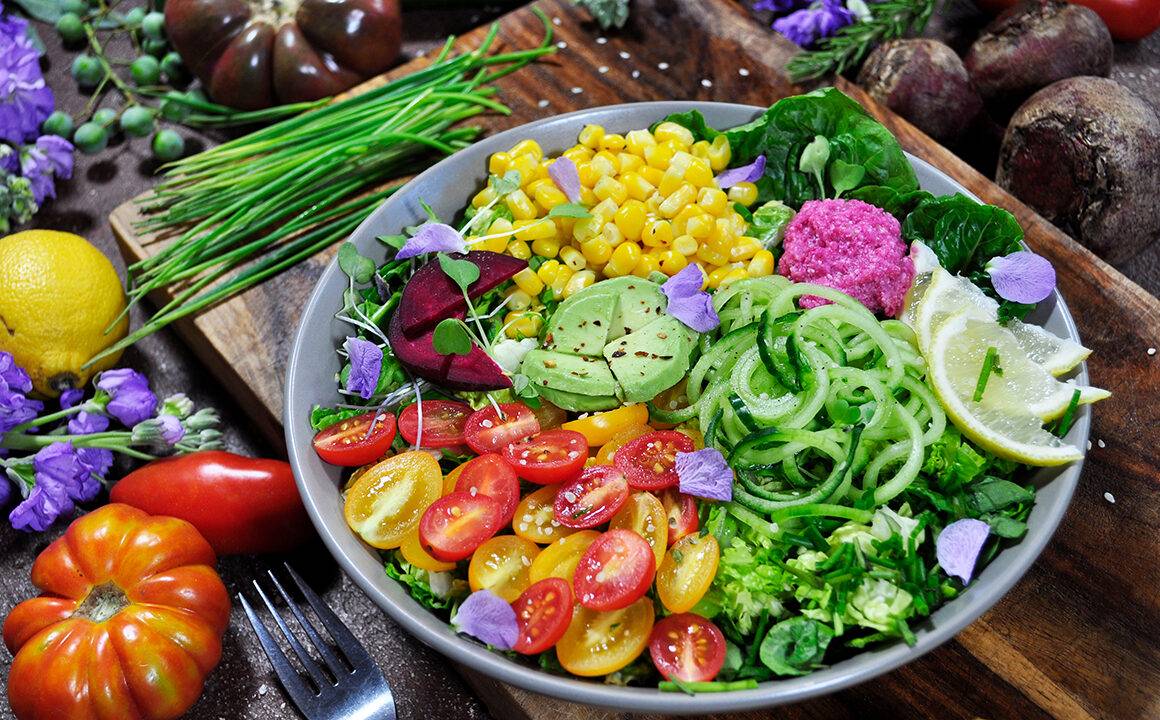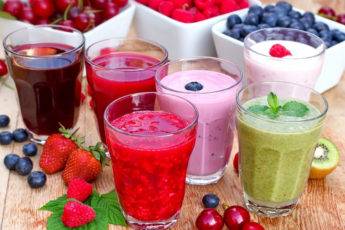Power of Plants: Vegan-Friendly Tips to Support Your Healthy Diet

Are you looking to improve your health and support a vegan-friendly lifestyle? Look no further than the power of plants! Plant-based diets have been proven to have numerous health benefits, from aiding digestion to reducing the risk of chronic diseases. In this blog post, we’ll explore six tips for incorporating more plant-based foods into your diet, including recipes and ideas for transitioning away from meat and dairy products. Whether you’re a longtime vegan or just starting on your plant-based journey, these tips will help you feel healthier and happier in no time!
Fiber to help with digestion
Fiber is an essential nutrient that plays a crucial role in maintaining digestive health. It helps to keep our bowel movements regular and prevents constipation. Fiber also feeds the good bacteria in our gut, which improves overall gut health. There are two types of fiber: soluble and insoluble. Soluble fiber dissolves in water and forms a gel-like substance, while insoluble fiber does not dissolve in water but adds bulk to stools.
To ensure we’re getting enough fiber in our diets, it’s important to include plenty of fruits, vegetables, whole grains, nuts, seeds, and legumes. A plant-based diet is naturally rich in fiber because these foods contain both soluble and insoluble fibers. The digestion support laxatives can help to speed up digestion and keep your bowel movements regular, however, they are not a substitute for a healthy diet. Consuming adequate amounts of dietary fiber can support optimal digestion by promoting regularity!
What are the benefits of plant-based diets?
Plant-based diets have become increasingly popular in recent years for their numerous health benefits. These diets consist mainly of whole, minimally processed foods such as fruits, vegetables, legumes, nuts, and seeds. One major benefit of plant-based diets is their high fiber content. Fiber aids digestion by promoting regular bowel movements and preventing constipation. It also helps to lower cholesterol levels and maintain a healthy weight. Another advantage is the reduced risk of chronic diseases like heart disease, diabetes, and certain cancers.
Plant-based foods are rich in antioxidants, vitamins, and minerals that protect against cell damage caused by free radicals. Moreover, adopting a plant-based diet can lead to improved energy levels due to its nutrient-dense nature.
Tips for following a vegan diet
Following a vegan diet can seem daunting at first, but with the right tips and mindset, it can be an incredibly fulfilling and healthy lifestyle choice. Here are some practical tips to help you navigate your way through a plant-based diet:
Educate Yourself: Learn about the nutritional benefits of plant-based diets by reading books or watching documentaries. This will help you understand why this lifestyle is so beneficial for both your health and the environment.
Plan Your Meals: Start planning your meals, including snacks that are high in protein to keep you feeling full throughout the day.
Experiment with Flavors: One of the most exciting parts of following a vegan diet is discovering new flavors and ingredients. Try experimenting with different spices, herbs, and sauces to give your dishes an extra kick.
Recipes for vegan-friendly meals
Eating a plant-based diet doesn’t have to be boring or tasteless. There are countless delicious vegan recipes that are packed with flavor and nutrients.
For breakfast, try making some vegan pancakes using almond milk and flaxseed instead of eggs. Top them off with fresh fruit for a healthy and tasty start to your day.
For lunch, whip up a hearty veggie burger using lentils or chickpeas as the base. You can also make a delicious hummus wrap filled with veggies such as cucumber, tomato, and avocado.
When it comes to dinner, get creative with stir-fried dishes loaded with colorful vegetables like bell peppers, mushrooms, broccoli florets, carrots, and more! Pair it all together over brown rice or quinoa for an extra boost of protein.
What are some replacements for meat and dairy products?
If you’re transitioning to a plant-based diet, finding alternatives for meat and dairy products is essential. Fortunately, numerous options can satisfy your taste buds while providing the necessary nutrients.
One of the most popular replacements for meat is tofu. Made from soybeans, tofu has a neutral taste but can absorb any flavor it’s cooked with. It’s also high in protein and low in fat, making it an excellent substitute for meat dishes.
Another option for replacing meat is tempeh. Like tofu, tempeh comes from soybeans but undergoes a fermentation process that gives it a nutty and slightly sour taste. It’s also rich in protein and fiber, making it perfect for filling meals such as stir-fries or burgers.
For those who love cheese but want to avoid dairy products, nut-based cheeses are becoming increasingly popular.
Transitioning to a plant-based diet can be challenging, but with the right mindset and knowledge, it can greatly benefit your overall health and well-being. By incorporating vegan-friendly meals into your diet, you’ll not only feel better physically but also emotionally as you help support sustainable agriculture practices. Remember to start small with gradual changes in your meals until you’re comfortable enough to fully embrace a plant-based lifestyle. Experiment with different recipes and replacements for meat and dairy products until you find what works best for you.
Share via:





Leave a Comment